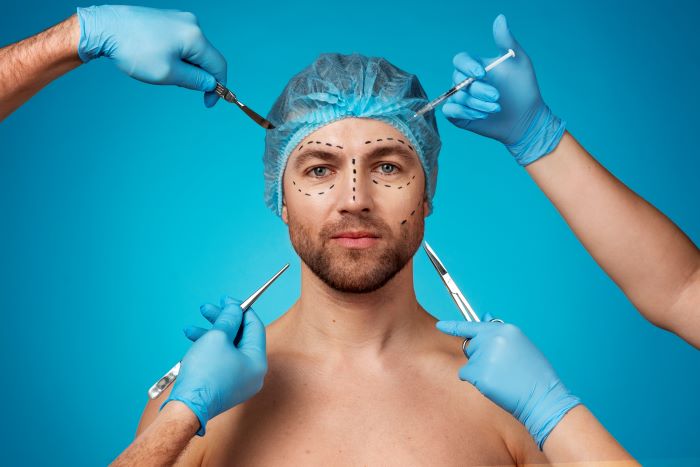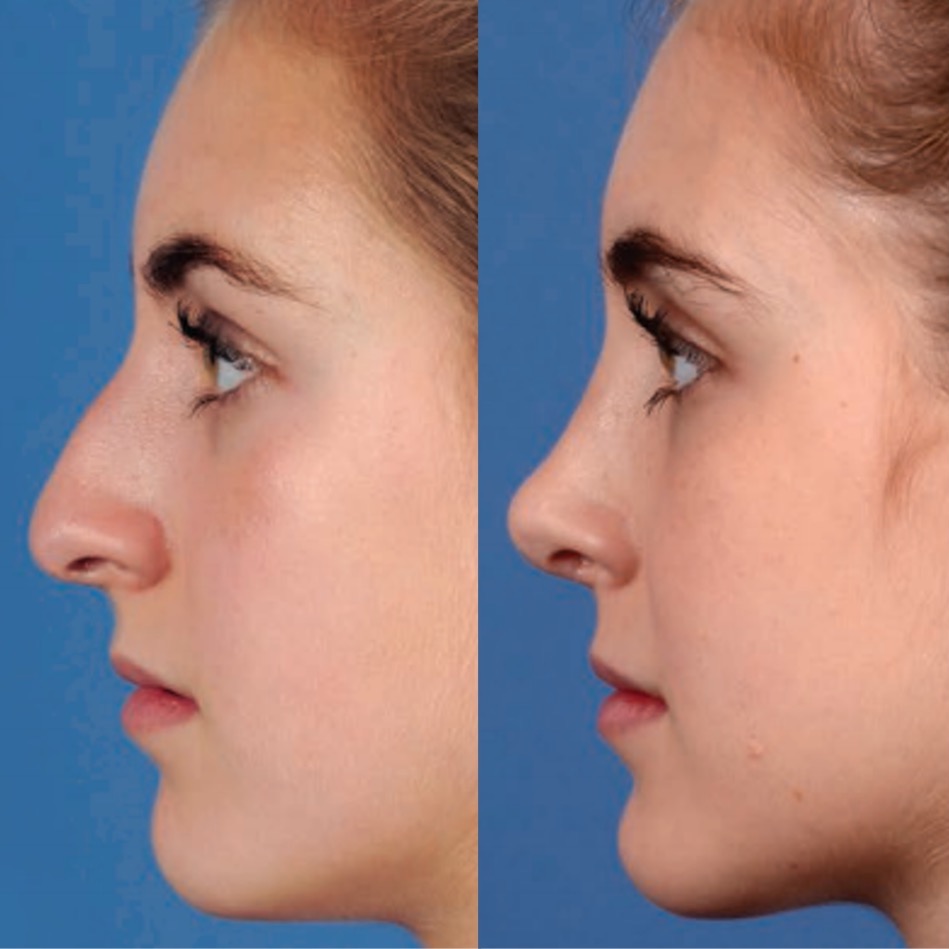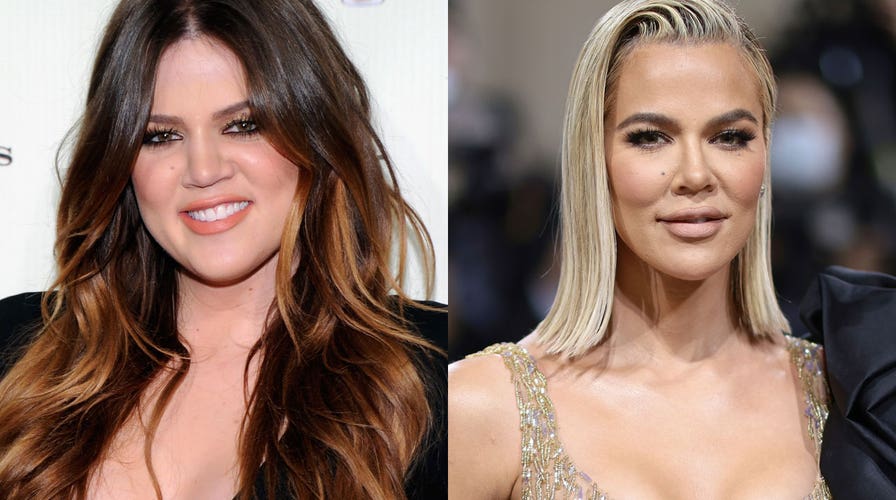Checking Out the Mental and Social Aspects That Drive Individuals to Take Into Consideration Aesthetic Surgical Procedure as a Way of Renovation
The decision to seek cosmetic surgical procedure frequently expands beyond plain aesthetics, linking with psychological and social characteristics that warrant thorough assessment. Factors such as self-confidence, prevalent social beauty criteria, and the prevalent influence of social media assemble to shape individual inspirations for surgical improvement.
The Duty of Self-Esteem
Self-worth considerably influences an individual's decision to go after cosmetic surgery. Individuals with low self-confidence often view themselves in a negative light, leading to sensations of insufficiency concerning their physical appearance.

Ultimately, the role of self-esteem in the decision-making process pertaining to plastic surgery highlights the complicated interplay in between body photo, personal contentment, and psychological health and wellness. Comprehending this relationship is essential for health care professionals to ensure that people are making notified decisions rooted in realistic assumptions and psychological well-being.
Social Elegance Specifications
Influenced by pervasive media representations and social narratives, societal beauty criteria play a crucial duty fit people' understandings of their own bodies. These criteria are commonly defined by an idyllic kind of appeal that highlights characteristics such as slimness, youthfulness, and proportion. As these perfects are perpetuated via numerous channels, consisting of advertising and marketing, movie, and television, people frequently internalize these messages, leading to discontentment with their all-natural appearance.
The effects of these social norms prolong past aesthetic choices; they can impact self-esteem, mental health and wellness, and social connections. Individuals who view themselves as disappointing these criteria may experience feelings of inadequacy, prompting a need for cosmetic surgical procedure as a way of accomplishing social approval. This pursuit is frequently sustained by the idea that satisfying these perfects will improve not just physical look but additionally social standing and individual fulfillment.

Influence of Social Network
The effect of societal appeal requirements is more intensified by the rise of social networks systems, where curated photos and idealized representations of elegance are common. Customers are continuously subjected to filteringed system and modified pictures, which commonly show unattainable physical attributes. This exposure cultivates a culture of comparison, leading individuals to analyze their own appearance against these commonly impractical benchmarks.
Social media site influencers and celebs regularly advertise aesthetic procedures, normalizing the notion that medical improvements are a sensible means for accomplishing societal suitables (plastic surgery rancho cucamonga). The visibility of these improvements can produce a perception that undergoing plastic surgery is a basic practice, consequently affecting individuals to consider similar treatments as a path to improved self-confidence and social acceptance
In addition, the interactive nature of social media permits for immediate feedback through sort and comments, further reinforcing the wish to satisfy preferred charm check over here standards. Such interactions can worsen feelings check my source of insufficiency and drive people towards cosmetic surgical procedure as a method of getting validation. Eventually, social media plays a critical duty in forming understandings of elegance, which substantially impacts the decision-making procedures surrounding cosmetic surgical treatment.

Cultural Perspectives on Look
Throughout different cultures, understandings of look are deeply rooted in historical, social, and financial contexts, shaping individuals' sights on appeal and charm. In numerous cultures, look serves as a substantial marker of identity, influencing social standing, specialist opportunities, and personal connections. For example, in some cultures, light skin is commonly related to wealth and advantage, while others might idealize darker skin tones as icons of toughness and authenticity.
Moreover, typical elegance requirements are frequently continued via cultural stories, media representations, and family members influences, causing varying perfects across various regions (plastic surgery rancho cucamonga). In Western societies, the focus on youth and physical conditioning usually drives people toward aesthetic enhancement, while in specific Eastern societies, more refined changes lined up with conventional looks may be liked
Globalization and the spreading of digital media have actually additionally complicated these dynamics, developing a hybridization of appeal ideals that goes beyond geographical boundaries. As individuals significantly navigate these cultural narratives, the stress to satisfy particular look criteria can lead to the need for cosmetic surgical procedure, reflecting a complicated interaction of cultural worths and individual aspirations. Comprehending these cultural perspectives is necessary in addressing the motivations behind cosmetic surgical treatment considerations.
Emotional Impacts of Aesthetic Surgery
Many people seeking plastic surgery report experiencing profound psychological impacts that can considerably alter their self-perception and emotional health - plastic surgery rancho cucamonga. The need for physical enhancement typically stems from underlying issues such as reduced self-worth, body dysmorphic problem, or societal pressures pertaining to elegance requirements. For some, the immediate post-operative phase can lead to a short-lived increase in confidence and complete satisfaction with their appearance, fostering a feeling of empowerment
However, these favorable feelings might not be withstanding. Research study suggests that while some patients experience boosted self-esteem, others might encounter elevated see anxiety or clinical depression if their expectations are not satisfied. This discrepancy can emerge from unrealistic perfects continued by media depiction and cultural stories surrounding appeal.
Additionally, the emotional ramifications of cosmetic surgical treatment prolong past the person. Relationships with friends and family might be stressed as social dynamics change, resulting in sensations of isolation or alienation. Inevitably, the psychological effects of cosmetic surgery are diverse and complex, needing mindful consideration by both prospective individuals and healthcare service providers to make certain informed decision-making and reasonable assumptions.
Verdict
To conclude, the choice to pursue cosmetic surgery is significantly affected by a mix of self-esteem issues, societal charm criteria, and social perspectives on appearance. The pervasive reach of social media better exacerbates these pressures, promoting unrealistic ideals that individuals frequently make every effort to attain. Understanding these mental and social aspects is necessary for resolving the inspirations behind plastic surgery, highlighting the need for an extra nuanced discussion bordering elegance and self-acceptance in modern society.
The decision to pursue cosmetic surgical treatment commonly expands past simple aesthetics, linking with emotional and social dynamics that merit detailed assessment. Eventually, social media plays a critical role in forming assumptions of appeal, which significantly affects the decision-making procedures bordering cosmetic surgery.
As people significantly navigate these cultural stories, the pressure to adapt to particular appearance criteria can lead to the wish for cosmetic surgical procedure, reflecting an intricate interplay of personal desires and cultural worths.In final thought, the choice to seek cosmetic surgery is dramatically affected by a combination of self-worth problems, societal elegance requirements, and social point of views on look. Recognizing these social and mental factors is essential for resolving the motivations behind cosmetic surgical treatment, highlighting the need for a much more nuanced discussion surrounding charm and self-acceptance in contemporary society.